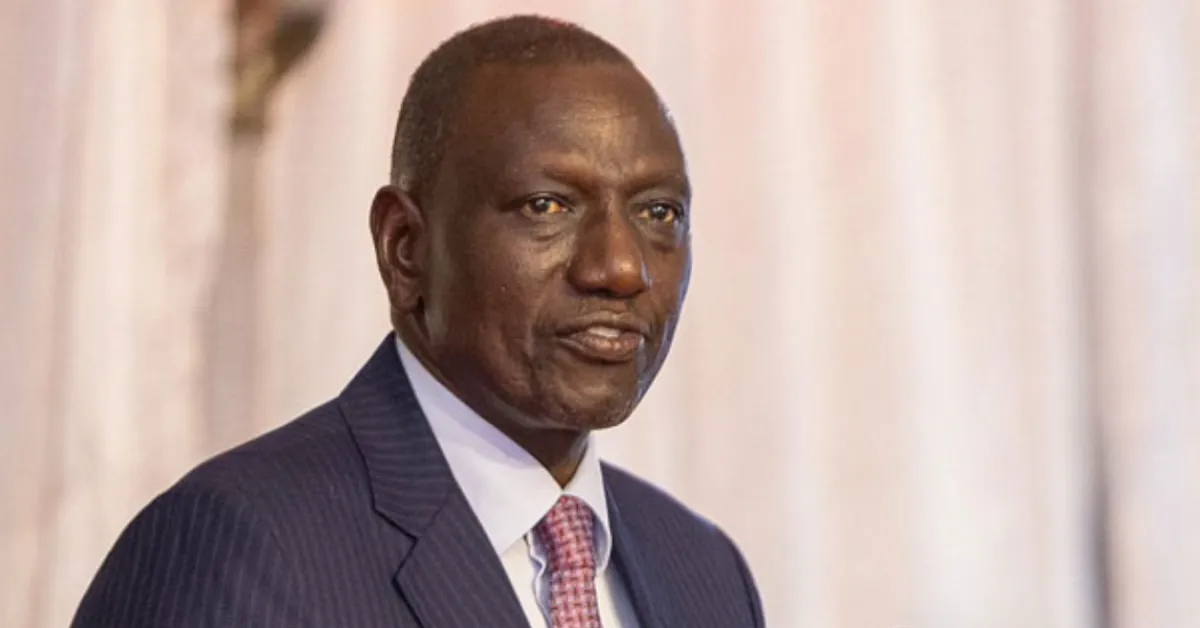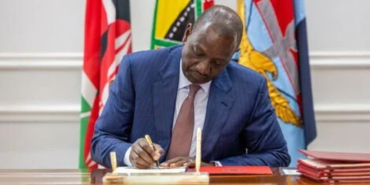Ruto Follows Uhuru Playbook as Government Diverts Billions to Offshore Account

The administration of President William Ruto is facing intensifying scrutiny amid allegations of diverting billions of Kenyan shillings in public funds into offshore accounts.
These allegations come against a backdrop of similar controversies that plagued the previous administration. The most immediate concern involves Sh6.5 billion (approximately $50 million USD) in e-visa revenues, reportedly deposited into a Swiss account instead of the Consolidated Fund—the Kenyan government's central account managed by the National Treasury. This fund is subject to strict regulatory controls, including mandatory approval from the Controller of Budget for any withdrawals.
This alleged circumvention of the Consolidated Fund draws parallels to the 2014 Eurobond scandal under former President Uhuru Kenyatta, where $2.75 billion in bond proceeds were similarly traced to offshore accounts with limited accountability. According to reports, the e-visa revenues were collected through a contract with Swiss firm Travizory Border Security SA. Between August 2024 and February 2025, the company collected Sh6.5 billion from foreign travellers seeking electronic travel authorization to enter Kenya.
Travizory retained Sh1.5 billion—23% of the total revenues—as payment for its services. However, the money was allegedly transferred to a Swiss account instead of depositing the remaining funds into the Consolidated Fund. Government officials have since acknowledged the arrangement but state that it has been discontinued, and all funds are now being routed through the e-Citizen platform to the Consolidated Fund. This disclosure has done little to alleviate public concerns over the initial diversion of funds and the perceived lack of transparency surrounding the deal.
Adding to the administration's challenges are claims made by former Attorney-General Justin Muturi regarding a $1 billion (Sh130 billion) environment grant earmarked for a tree-planting initiative. Muturi alleged that President Ruto attempted to pressure him into approving a plan to channel the funds directly to the Ministry of Environment, bypassing the Consolidated Fund. Muturi, citing the Public Finance Management (PFM) Act, insisted that the funds be routed through the National Treasury for proper oversight and accountability.
Muturi further claimed that he was presented with documents for approval at Dubai International Airport. He refused to sign, arguing that the law mandates grants to flow through the Treasury to ensure adherence to established financial regulations. The grant, intended for planting three billion trees as part of a broader 15-billion-tree program, has since become a focal point of concerns surrounding the government's management of public funds.
These developments have reignited memories of the 2014 Eurobond scandal, where $2.75 billion in sovereign bond proceeds were deposited into offshore accounts, specifically JP Morgan Chase Bank and Citibank in New York. Auditors at the time were unable to fully trace the funds' movement or verify their allocation to specific development projects. A significant portion, Sh53.2 billion, never reached Kenya and was instead used to pay off a syndicated loan overseas.
Subsequent audits revealed that even the funds that entered Kenya were commingled with other government revenues, making it impossible to track their impact on development. The Auditor-General’s 2019 report criticized the lack of accountability, emphasizing the need for future international sovereign bonds to be earmarked for identifiable projects to avoid such opacity. The Constitution of Kenya mandates that all government revenues, including loans and grants, be deposited into the Consolidated Fund unless Parliament has established a specific fund for a designated purpose.
This requirement is designed to ensure rigorous oversight and minimize opportunities for financial mismanagement. Withdrawals from the Consolidated Fund require multiple layers of approval, including requisitions from ministries, scrutiny by the Treasury, and authorization from the Controller of Budget. Bernard Ndung’u, the Director-General of accounting services at the National Treasury, has emphasized the importance of the Consolidated Fund as a safeguard against misuse.
“The Consolidated Fund is highly regulated. All withdrawals are initiated by the National Treasury but must be approved by the Controller of Budget. These measures ensure that funds are used strictly for their intended purposes,” he says.
Despite these safeguards, the temptation to bypass the Consolidated Fund persists, often driven by the desire to circumvent its stringent checks and balances. The diversion of public funds away from the Consolidated Fund has historically led to adverse outcomes, with citizens bearing the brunt of mismanagement through unfulfilled development promises and an escalating public debt burden.














Add new comment